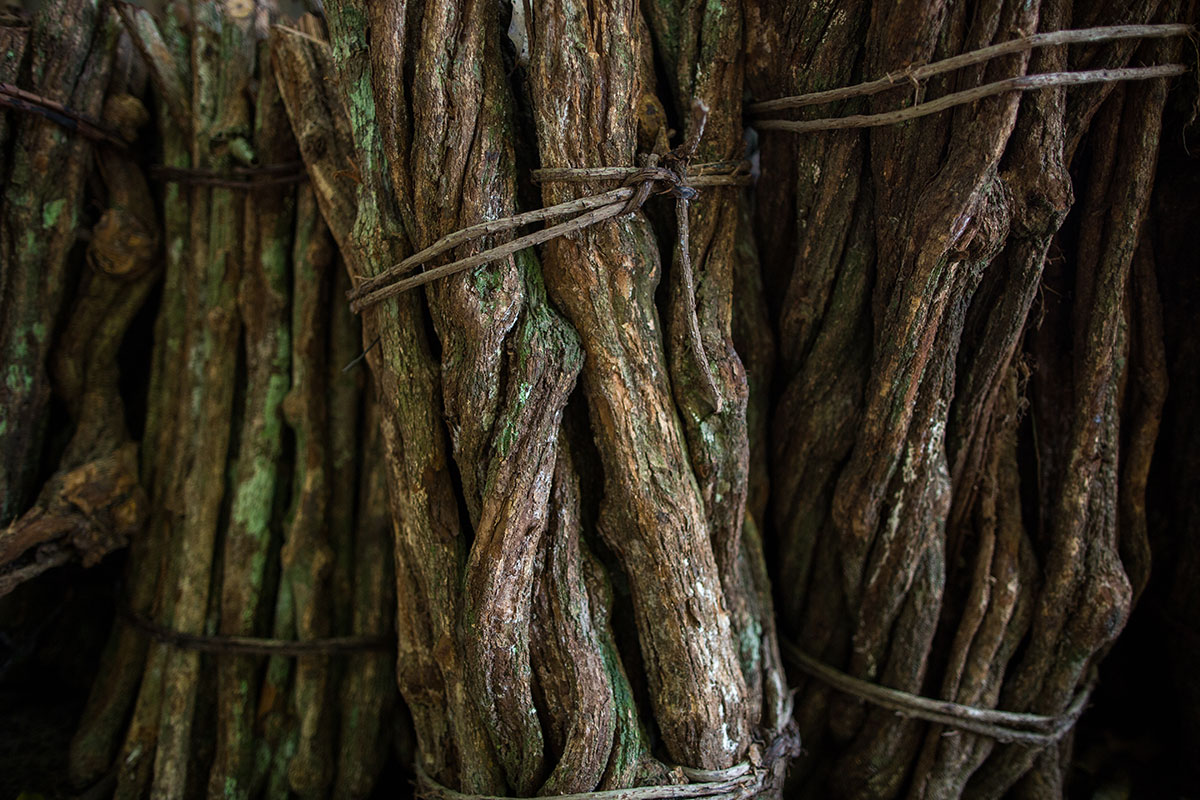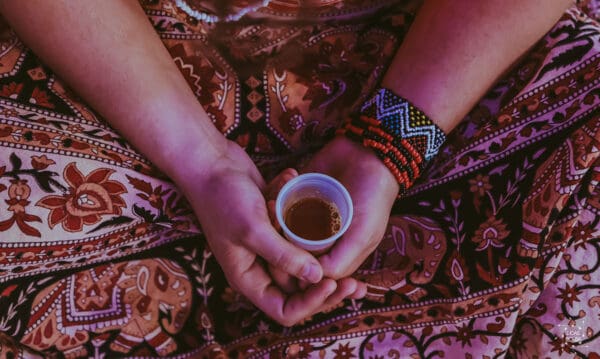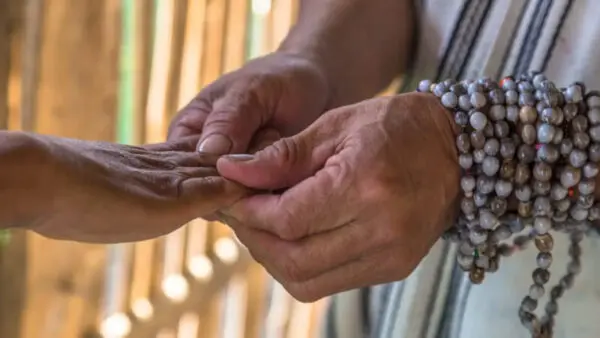Medical Editor: Dr. Lynn Marie Morski, MD, Esq
Ayahuasca is a psychedelic brew used by indigenous people of the Amazon for spiritual ceremonies and personal transformation. It causes deep introspection, hallucinations, and visions, and has indicated transformative psychological healing properties.
Ayahuasca has become a subject of interest for western cultures amidst a recent resurgence of psychedelic exploration. As more people learn about the mystical experience of an ayahuasca ceremony, tourism surrounding this South American tradition has significantly increased.
While ayahuasca can have many benefits, there are also certain risks. Here is what everyone should know about the effects of ayahuasca, as well as important considerations when determining whether or not it’s right for you.
What is ayahuasca?
Ayahuasca is a brew made from the Banisteriopsis caapi vine and the leaves of Psychotria Viridis, though there may be additional ingredients depending on the tradition. The hallucinogenic effects are only possible through the combination of these two plants. Harmala alkaloids present in the Banisteriopsis caapi vine act as a monoamine oxidase inhibitor (MAOI), which is necessary to facilitate the absorption of the psychedelic substance dimethyltryptamine (DMT) found in the leaves of the Psychotria Viridis plant.
When consumed, ayahuasca is known to provoke deep, meaningful experiences that many have found to result in healing, epiphanies, or some form of positive personal transformation. For this reason, ayahuasca has been used by indigenous tribes of the Amazon for spiritual and religious ceremonies throughout history and remains an integral part of certain South American cultures to this day. The name translates to “vine of the dead” or “vine of the soul” in the Quechua language.
Ayahuasca ceremonies are led by a healer (also called a shaman, Ayahuasquero, Onaya, Maestro, Taita, or Curandero) who guides participants in their deeply personal journey.
For more in-depth information about the history and culture of ayahuasca, be sure to read Psychable’s Beginner’s Guide to Ayahuasca.
What are the effects of ayahuasca?
The effects of ayahuasca tend to manifest within 30 minutes to 1 hour of consuming the brew and are sustained for a period of about 6 to 10 hours. During this time, journeyers will have intense physical, emotional, and spiritual experiences that can be challenging for both the mind and body.
The journey is different for each individual. During an ayahuasca ceremony, a person may have a wide range of experiences. Hallucinations and visions may be pleasantly dream-like or feel nightmarish, with many reporting visions of and interactions with otherworldly beings, entities, spirits or demons, and even animals or plants that appear in unusual ways.
Ayahuasca can evoke revisitation of past events that may have been traumatizing, or fond memories may arise and be seen with a tender new perspective. A person’s emotional responses can vacillate between feelings of anxiety, paranoia, and fear, to peace and euphoric joy accompanied by shifting visions that occur during this mystical journey. Contrasting emotions can happen simultaneously, and it is common for emotional purging to occur in the form of tears or laughter.
In addition to being a psychologically challenging experience, ayahuasca can have intense physical effects and cause purging through sweating, vomiting, or diarrhea. Chills, shaking, nausea, and increased blood pressure, burping, and gas are other acute physical results possible with ayahuasca consumption.
The challenging effects of ayahuasca are not considered to be negative by the indigenous cultures for whom it is deeply relevant to spiritual belief. In fact, these cultures believe that physical and emotional purging is a critical part of the healing process and acts as a catalyst for transformation.
Conclusive scientific proof of ayahuasca’s benefits has yet to be established, but the personal experience of countless journeyers throughout time serves as compelling anecdotal evidence of its positive influence.
Reported benefits of an ayahuasca journey include healing from loss or trauma, improving symptoms of depression and anxiety, eliminating or reducing addictive behaviors, and being transformed through epiphanies and personal, meaningful, spiritual experiences.
What are the risks of ayahuasca?
While there are many accounts of transformational and healing encounters with ayahuasca that have been beneficial in people’s lives, it may not be right for everyone and can be unsafe for certain individuals.
Ayahuasca can trigger or aggravate psychotic and manic episodes symptomatic of certain mental health conditions. Individuals who have been diagnosed with these conditions or have a family history of psychosis or mania should not consume the brew.
Ayahuasca may cause complications for certain health conditions. Drinking the brew causes an increase in blood pressure, which may be problematic for individuals with heart conditions. Though additional research is needed to fully understand the implications, people with diabetes, kidney, and liver conditions are advised to avoid ayahuasca.
Also, ayahuasca is not considered safe to consume in combination with or after the very recent use of prescription antidepressants such as selective serotonin reuptake inhibitors (SSRIs) or Monoamine oxidase inhibitors (MAOIs). In general, retreat centers that offer ayahuasca ceremonies should ask about medications like this during a health screening process to determine eligibility. Though some are curious about the antidepressant properties of ayahuasca, no one should stop taking these medications suddenly or without consulting a doctor beforehand.
Other medications may also have negative interactions with ayahuasca; in cases of uncertainty, speak with a physician familiar with psychedelic medicines and how they might interact with various prescriptions. Knowledgeable practitioners can be located through Psychable’s directory.
Closing thoughts
Ayahuasca may offer unique benefits and facilitate personal transformations, but just like any mind-altering psychedelic substance, it is important to be fully educated as to the potential risks for each individual and take them seriously. For this reason, it is important to seek guided ayahuasca ceremonies that are operated by reputable organizations and perform participant screenings.
Preparation and integration are considered vital to a meaningful ayahuasca journey, in addition to a ceremony environment that is safe, positive, and supportive.








